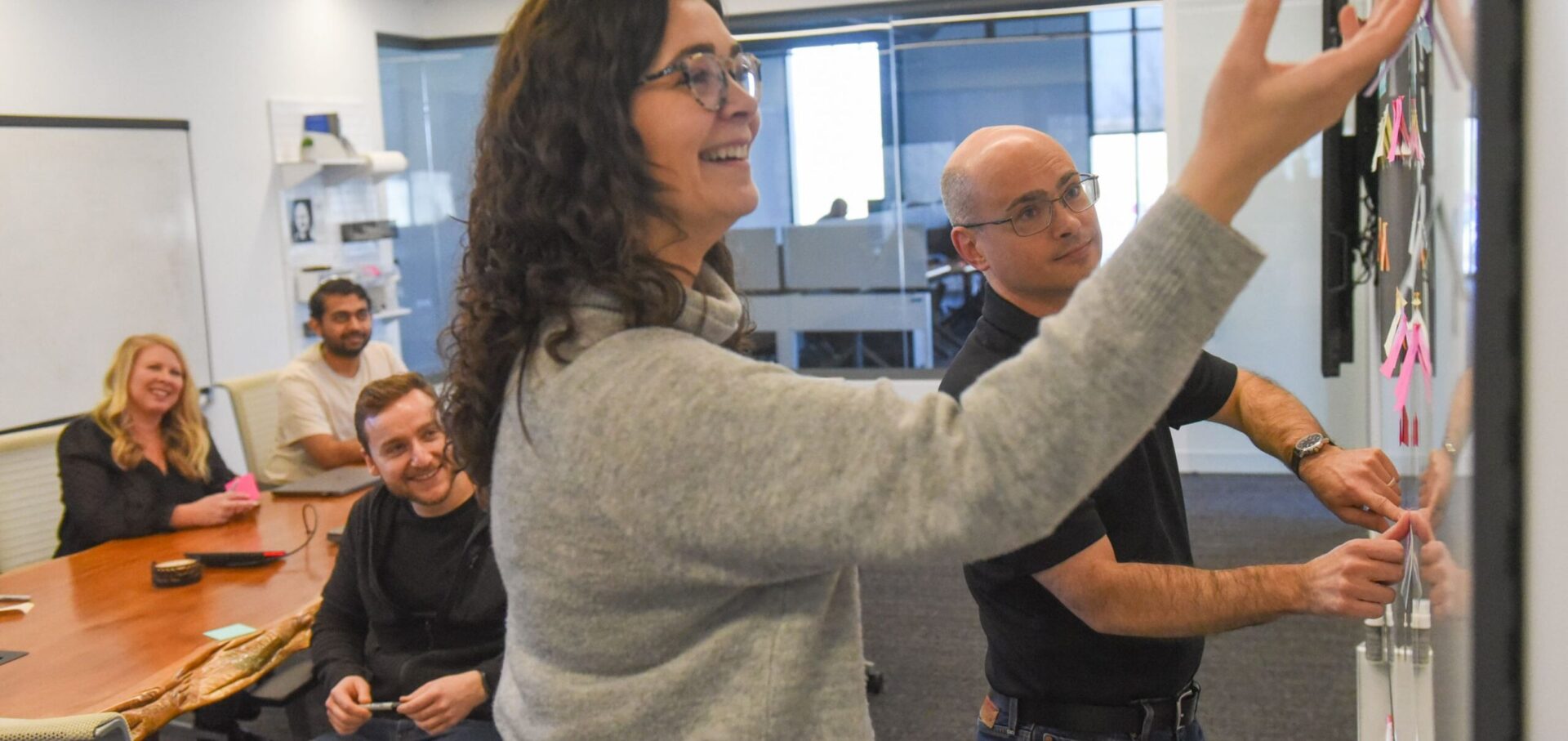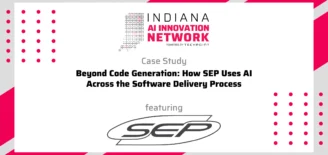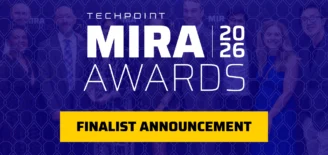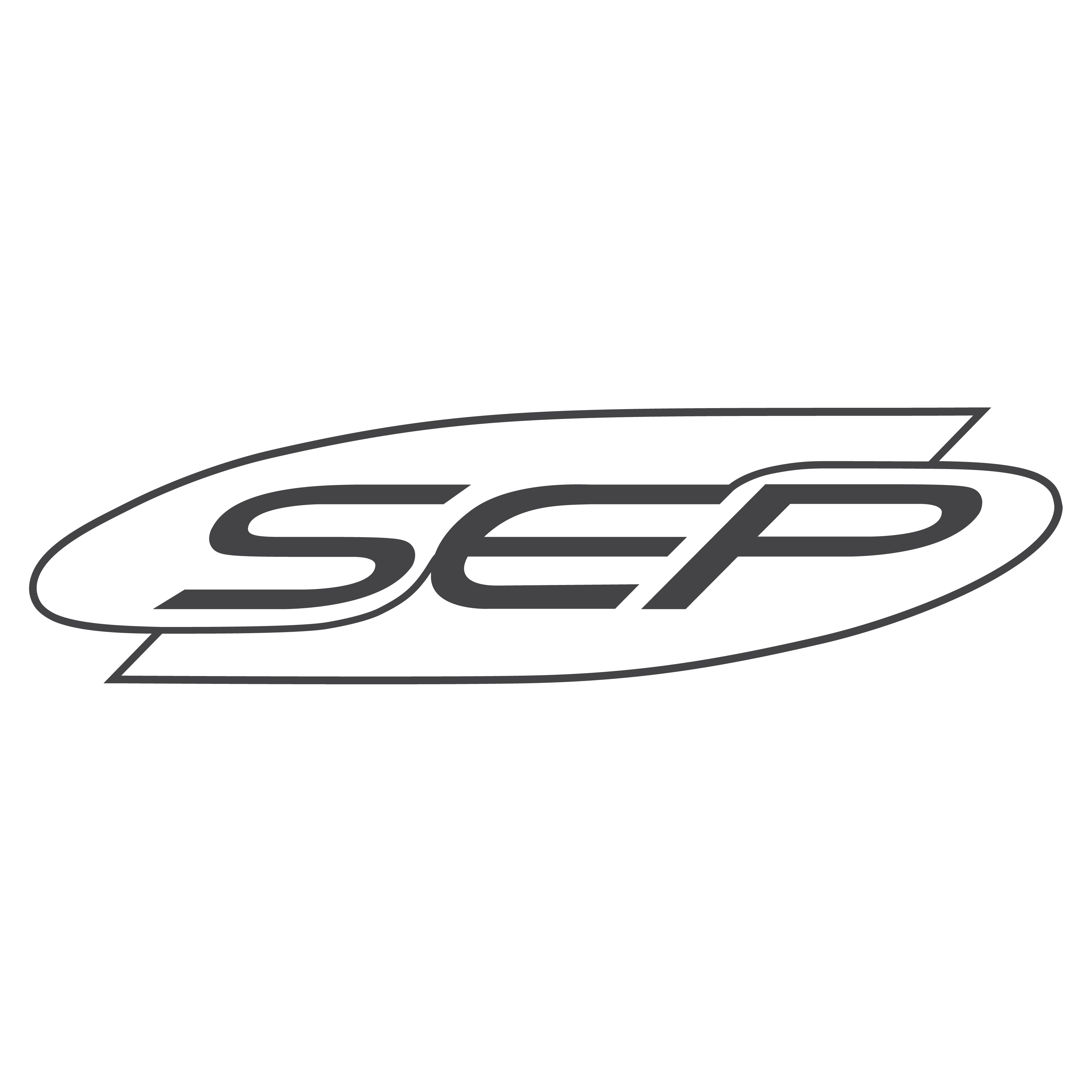SEP built a forever home that others now see as their home office, too
When a majority of the Indiana tech community adopted remote work in 2020, software product design and development firm SEP started building a world-class headquarters in Westfield that would more than double its space.
In 2021, when many of those companies had decided to go permanently remote or hybrid, SEP brought its full team back to work at its new office space and doubled down on its office-first culture.
“Just like the rest of the world, we said, ‘We’ll see you all in two weeks,’” recalls COO Traci Dossett. “And while we were remote much longer than we planned, remote work was never something we planned to do forever.”
SEP’s decision to return to the office was made because leaders there firmly believe that collaboration is key to understanding their clients’ pain points and to creating the best software solutions to address them. But it spawned an unintended and decidedly positive consequence: 40 percent of its clients have sent teams to work on-site with the SEP team and 60 percent routinely use SEP space for brainstorming or other meetings.
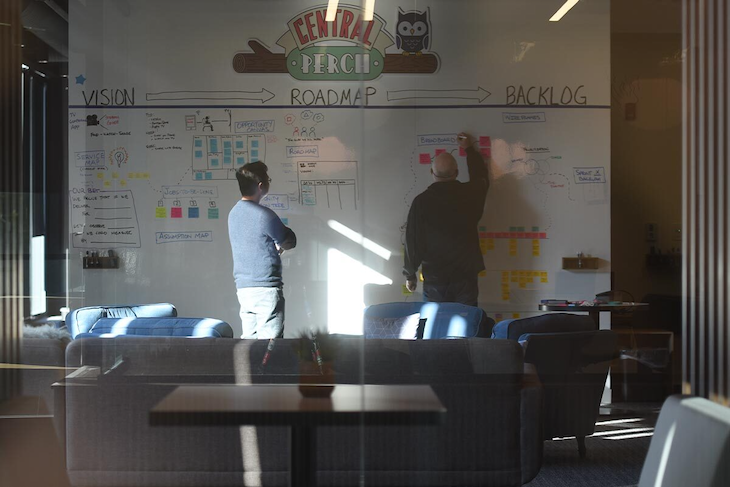
Often, requests are to host leadership offsites, brainstorming sessions or workshops, but two clients are now working with SEP on-site because they need a central location to collaborate, and their organizations are fully remote. Some out-of-state clients send teams for prolonged periods to overcome limitations that even the best online collaboration tools can’t fix.
“Clients consistently tell us that they appreciate that we are in person,” said Mike Mumau, VP of Customer Experience. “It’s not uncommon for a client to ask if they can come in for a week or even longer to work side-by-side.”
The hosting capability has become a great value-add. Fronius USA, for example, said being physically present at SEP with its team has helped them strengthen and develop interpersonal relationships.
“It just isn’t the same when done solely through virtual communication,” a company rep said. “Being with the SEP team, in their office is more efficient when it comes to problem solving, and that speeds the development process. So, it’s a good partnership as we work to get our products to the U.S. market.”
The Austria-based provider of welding equipment, battery charging, and solar energy solutions is nearing completion of its first research and development (R&D) operation in the U.S. in Portage, Ind. Its solar energy division is working with SEP to help develop a reliable and comprehensive supply of energy to homes 24-hours-a-day.
The new Fronius facility should be open at the end of July and will serve to establish a U.S. footprint. The company has already onboarded six employees from the U.S. and plans to send five from the Austrian operations over to support the Portage team. The goal is to have 12 R&D associates by year’s end and add 12 more next year.
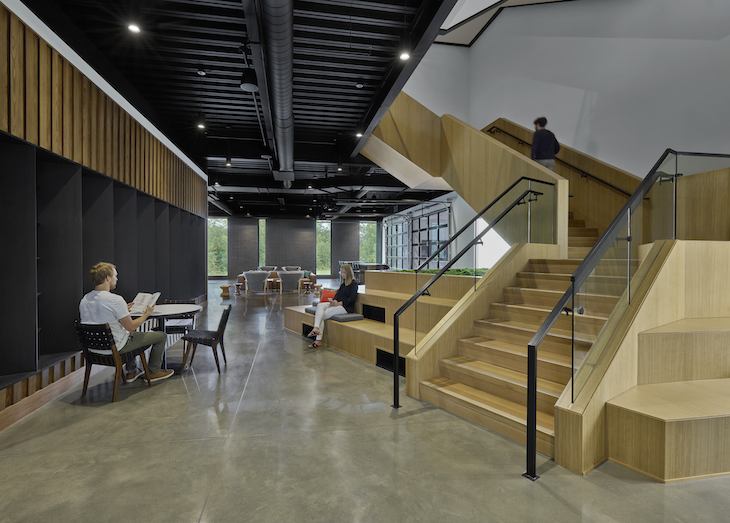
A clear example of how being in-person has proven helpful came when the Fronius and SEP developers were discussing a complicated technical topic but the team clearly wasn’t understanding it.
After a few minutes with no clarity, the Fronius developer pulled out a whiteboard and drew a diagram that solved the communications issue and sped the team toward the solution. The interaction could have taken place online, but the teams had an “aha” moment, feeding off of the face-to-face iteration.
Mumau said that story is a perfect illustration of why SEP believes so strongly in in-person work. Having others in the building isn’t an inconvenience as SEP currently has more than enough space.
“We do have great space here, and we know that we do our best work in a collaborative, in-person way, so it works out well for everyone,” Mumau said.
SEP’s $27 million, new corporate campus houses its 70,000-square-foot headquarters on more than 20 acres of ground at U.S. 31 and 161st Street. It’s connected to two local parks, has its own small wooded area and pack of deer that seem clued in to the company’s meeting schedule and often emerge to welcome guests. Walking trails and a fire pit near a pond on the campus makes the facility a destination point for more than working.
Still feeling the effects of acting as construction general managers in addition to their day jobs, Mumau and Dossett, aren’t actively thinking about additional expansion. But they’re prepared for that day.
“We definitely have room for growth! This building will allow us to grow to at least 300 people and our campus would allow us to expand well beyond that,” Dossett said.

Even though the building isn’t at capacity, there’s clearly a lot going on within its three floors.
Twenty teams of software engineers, developers and designers work in a thoughtful space that includes:
- Whiteboard walls galore
- Rolling desks to move in and out of project teams based on customer needs
- Extra space for moving around and configuring a team area for what collaborative activities need to happen and
- Even space for puzzles or games for teams to relax in between tasks.
Where there aren’t white board walls, there are windows, so natural light floods the space as teams confer around desks on wheels. The wheels are locked while the project is underway, but as team members peel off to new assignments, they effortlessly push work stations to the new project space. It’s efficient, clean, and entertaining to watch a parade of makers rolling down the hallways as they transition to new projects.
By design, the company has been quietly working in the background for decades, building software that has saved and improved lives but rarely getting credit for making incredibly complicated and innovative mechanisms work.
Many of the projects are covered by confidentiality agreements, but past examples include projects ranging from one to ensure infants in a neonatal intensive care unit get the proper amount of nutrition while being treated for serious conditions, to ensuring military aircraft are fitted with predictive sensors that can alert the crew to maintenance needs.
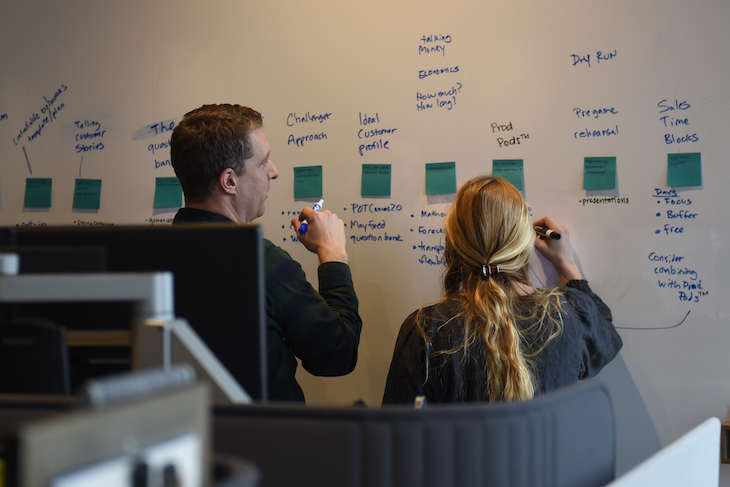
Clients run the gamut of construction, edtech, fintech, precision ag, energy, healthcare, aerospace, gaming, pharma, medical device, IoT and automotive sectors. But it’s not uncommon, Mumau admits, to hear prospective clients say, “We’ve never heard of you.”
Company leaders like to say SEP makes software that matters more. That’s because its software keeps airplanes in the sky, helps farmers feed a growing population, and makes medical devices safe. The kind where “good enough” doesn’t cut it.
In May, SEP celebrated its 35th year of operation with a first-place finish in the Indy Star’s Top Workplaces annual ranking and its “New Ideas” award. The company has earned Best Places to Work in Indiana status from the Indiana Chamber of Commerce for 14 consecutive years and is in the Best Places to Work Hall of Fame.
Longevity among the SEP team is legendary. Dossett and CEO Raman Ohri, for example, each celebrated 30 years with the company this year. Another employee, who’d been at SEP for 13 years, recently thought he’d enjoy remote work and left during the pandemic. He’s since enthusiastically returned to SEP’s office.
“We’re not a company that’s in the limelight or wants explosive growth or is looking for a quick exit,” Mumau said. “We’ve won workplace awards for years because of our approach, and it’s resulted in teams that stick around five, 10, 20 and more years because the work is fun, it’s meaningful; it makes a significant difference.”
After relocating a few times since 1988, SEP now counts 160 employees (50 new since 2020) and each of them has a stake in the company’s ownership via its employee stock ownership plan—another part of the culture that encourages team members to stick around.

They’re not the only ones sticking with SEP. Many of the company’s clients who signed on board in 1988, are still getting their software built by a SEP team.
“In some cases, our clients’ teams have fully turned over since we’ve been working with them. The only constant is us,” said Kelly Wilson, director of marketing and public relations.
Not all of those companies need office space. Allegion, for example, which has brands that have been innovating locally in the security space since 1908, turned to its near neighbor to bolster its internal team’s ability to continue meeting customers’ evolving technology needs.
“Like any company innovating in the digital space, we need flexibility when it comes to product ideation and creation,” said Tripp Holt, Allegion’s group product manager—commercial software. “SEP is the best external software team that we have used by far.”
Among the projects SEP is working on for Allegion, is designing a mobile app that enables companies to control access to their properties digitally, and other apps designed for individual use. Those projects may seem simple, but they’re not as they have to ensure security but also be easy to use.
Holt said he appreciates SEP’s culture, which he describes as “outcome based” rather than output based.
“I can go to them with a project that has 100 different steps or requests within it, and they’ll look at that list and then look at me and say, ‘OK, Tripp. What do you want to accomplish here? We can do all these things, but we might be able to get you there faster,’” Holt said. “If you want a development company to do exactly what you ask them to do and not push back and question you, SEP isn’t likely the company for you.”

